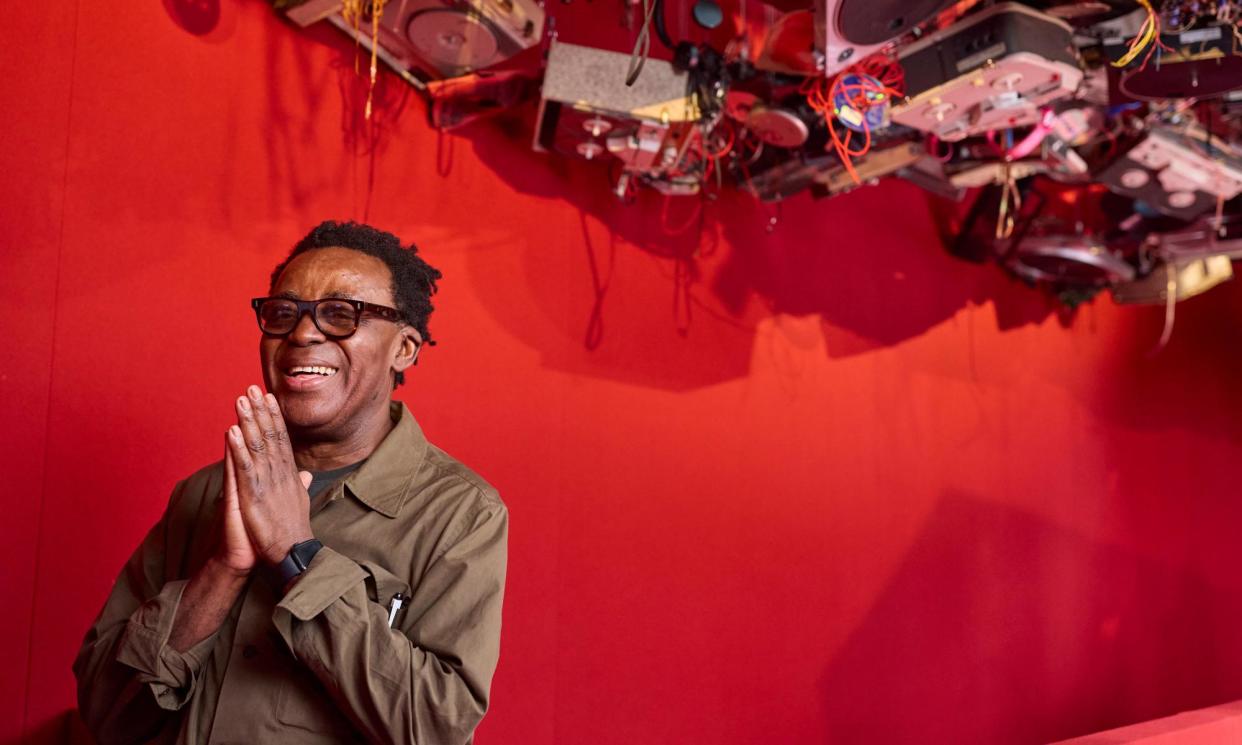Put levy on smartphones to help creatives survive AI threat, top UK artists tell Labour

More than 4,000 artists have called on the government to create a levy on smartphone sales to fund visual art in the face of cuts, studio closures and the rise of generative AI.
Creatives including Sir John Akomfrah, Britain’s representative at the Venice Biennale, and Dame Sonia Boyce, the first black woman elected to the Royal Academy of Arts, as well as film director and photographer Sam Taylor-Johnson and Turner prize nominee Heather Phillipson have signed an open letter to Lisa Nandy, the culture secretary.
They urge Nandy to help visual artists in the UK with funding and political support, saying the creative industries are worth £126bn a year to the British economy.
“Despite this, many … visual artists, particularly freelancers, are among the creative industry’s lowest earners,” the letter says. “We must address these disparities and support these essential workers.”
The artists suggest two immediate ways the government could help: by creating a freelancers’ commissioner, and setting up a “smart fund”, backed by the Design and Artists Copyright Society (Dacs), which collects royalties and manages artists’ rights, and the Contemporary Visual Arts Network.
A freelancers’ commissioner could help the government understand the challenges such workers face, such as irregular pay and insecurity. About 16% of all UK workers are freelance, rising to 49% in the cultural sector and 70% in the visual arts.
A smart fund, the artists argue, could generate about £300m a year through a small levy on sales of smartphones, computers, tablets and other devices that can share creative content. The money would be distributed to visual artists according to the amount their work is accessed, similar to royalties for musicians. Manufacturers pay into similar schemes in 45 countries, according to Dacs.
Akomfrah said: “Artists have been unsupported for too long, and the new government has the opportunity to put this right – by investing in creative education, by supporting freelance artists, and by enabling new spaces for the creation of art, across the UK.”
Christian Zimmermann, Dacs’s chief executive, said that galleries, studios, museums and visual artists “face significant challenges” in earning a living from their work.
These include issues ranging from “the dramatic reduction in culture spending by local governments, and the reduction in funding streams supporting independent artists, to the rise of generative AI that threatens the copyright and livelihoods of visual artists,” he said. “UK artists need robust support to continue creating the works that enrich all our lives.”
The letter supports a manifesto for the visual arts sector that also includes supporting affordable artists’ studios, offering tax relief for galleries, ensuring schoolchildren visit a cultural institution at least once a year, and supporting disabled artists.
Bianca Raffaella, a painter who is registered blind and has partial sight in one eye, finished her residency at Tracey Emin’s Margate art school and studios last week after 18 months.
“The main thing about being a freelance artist is that you’re completely on your own,” she said. “You’re the artist, the promoter, the gallerist, the bookkeeper, the accountant – it’s daunting. And from the point of view of a disabled artist, there are other challenges too. The government really needs to be brought up to date.”
Lindsay Seers, whose installations have been shown at Tate Britain, said: “Artists are free-funding their own works.
“Thousands of artists are being trained and they’re basically being led up the garden path because they just won’t be able to survive.”


